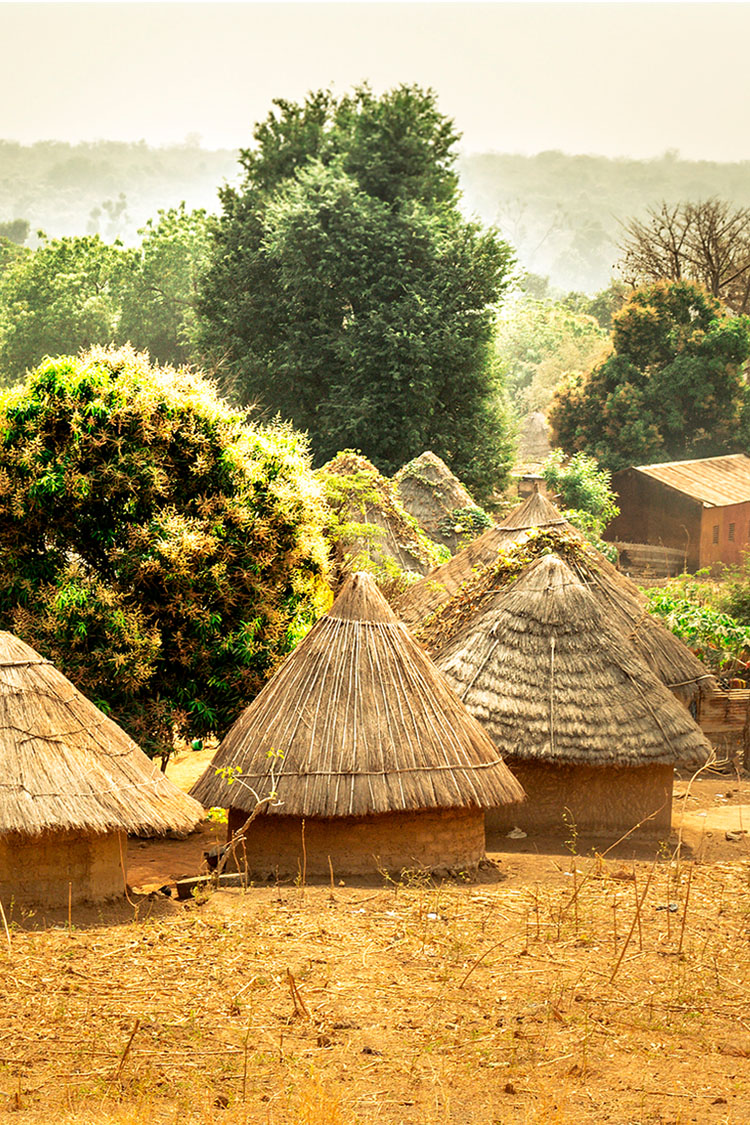At Santander BEST Africa we offer technical or economic support to enterprises that favour the employment of women, promote sustainability - economic, social and environmental - and contribute in an inclusive way to the development of the community.
Find out about some of the projects included in the programme.
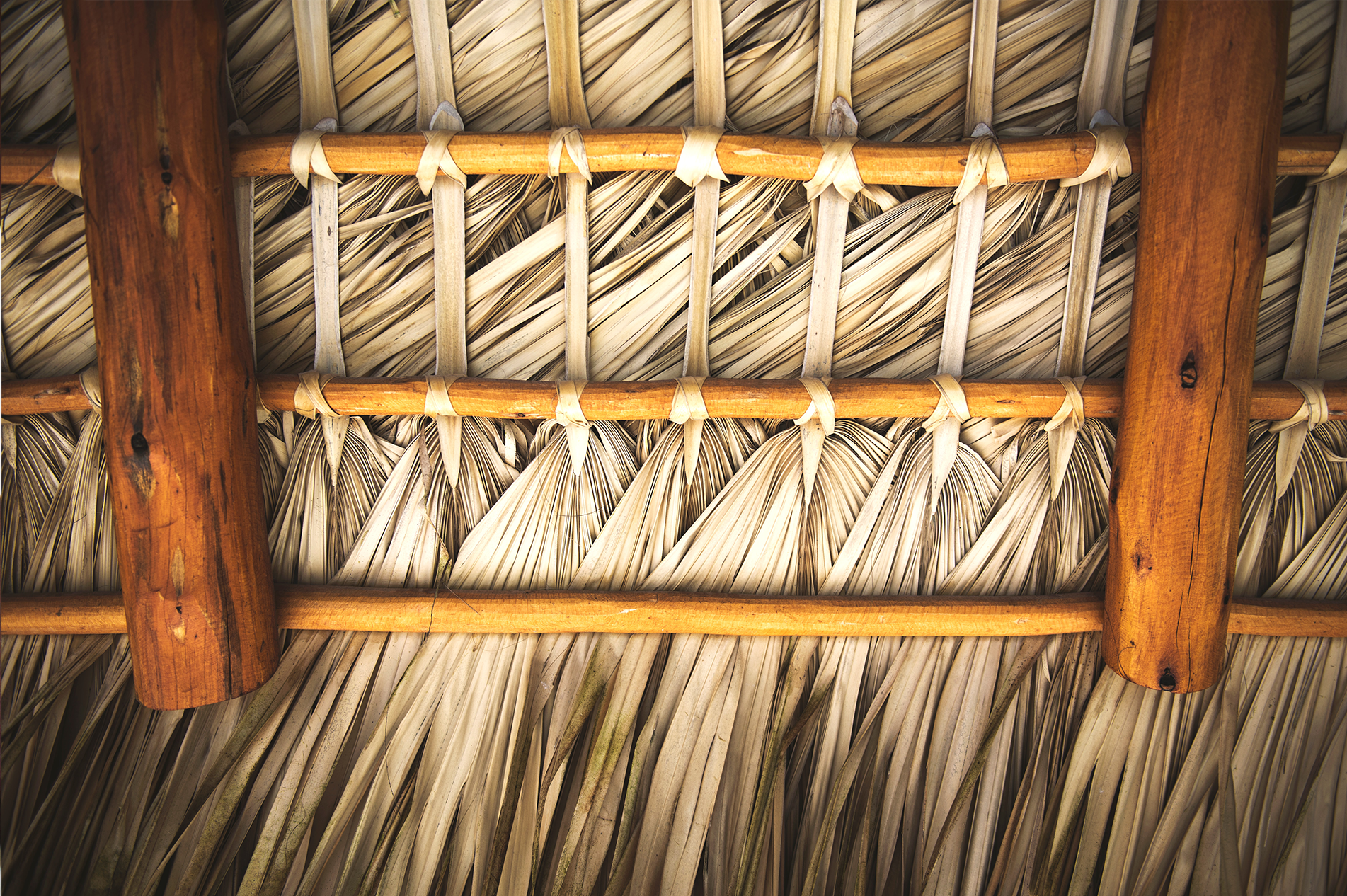
Campement Le Bedick "Chez Leontine". Senegal
At the heart of the Bassari Country, in Senegal, Leontine Keita, a young woman of Bedik ethnicity manages a small rural camp, Chez Leontine, comprised of 8 rustic cottages and a dining room. Leontine is also the promotor of a cooperative of flour producers in her native town, Bandafassi.
The perforation of a water well inside the camp has enabled the supply of drinking water not only to the bungalows and kitchen of Leontine’s camp, but also to the women’s cooperative of Bandafassi and to the entire community.
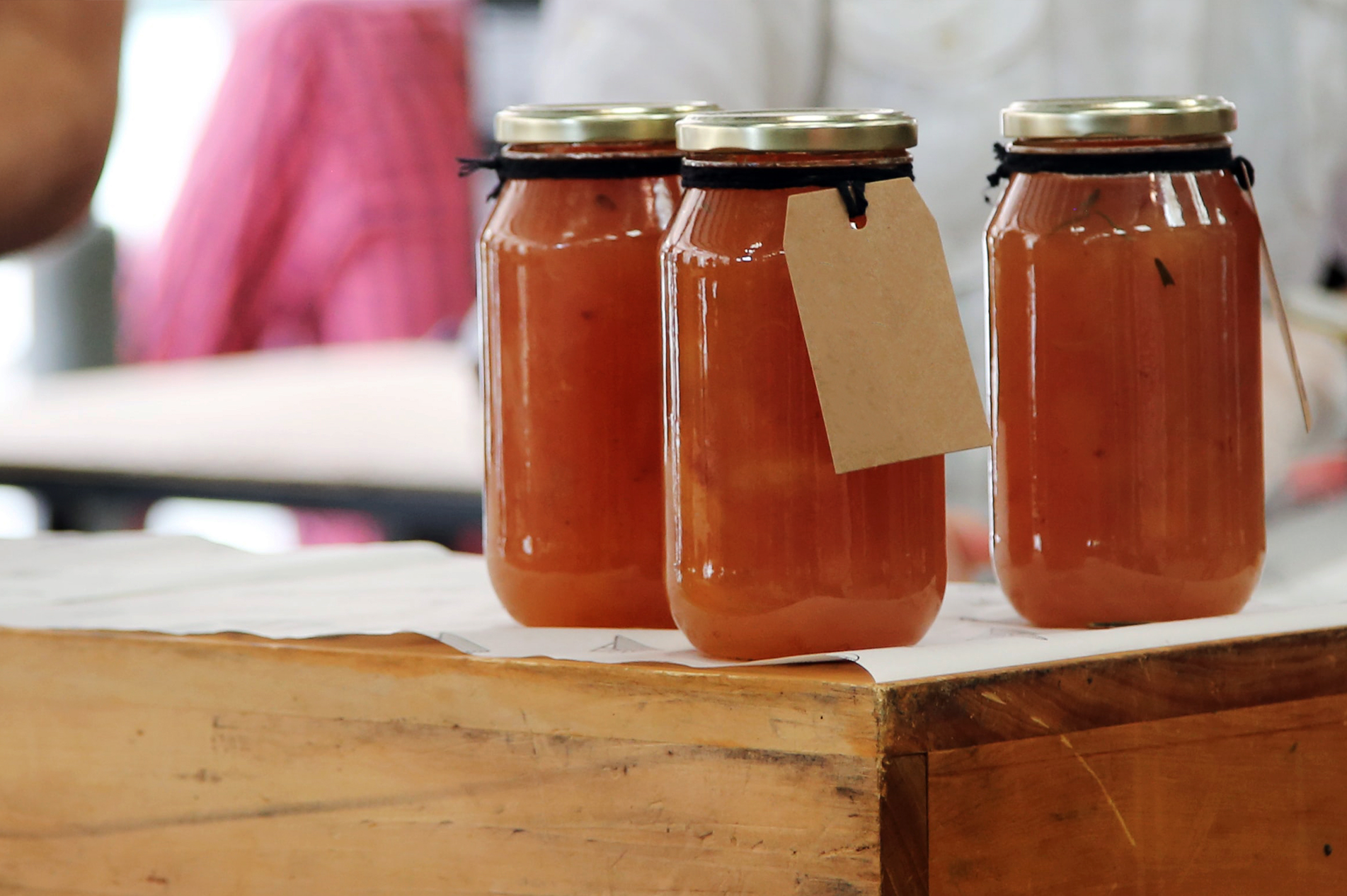
Jinaben Yo Afeo. Senegal
Jinaben Yo Afeo was founded in 2015. A group of nine women and one man form this group, dedicated to the production of jams, juices and syrups derived from a variety of fruits, including mango, papaya, bitter oranges, bissap or grapefruit. This group has an establishment and a small shop in the outskirts of the Ossouye municipality in the heart of Lower Casamance.
Jinaben Yo Afeo is fully equipped for the elaboration of natural, locally grown products which are sold on a small scale at the group’s store to travellers visiting Oussouye.
The municipality of Oussouye is in a strategic point on the tourist routes or itineraries of Lower Casamance. Located between Ziguinchor and Cap Skirring, two capitals with a large number of tourist establishments, this group can offer their products to the many hotels and restaurants located in the region’s two most visited populations.
At Santander BEST Africa, with the collaboration of "Solidarity Camps" and "Filmmakers in Action" – providing the technical support on the field, we facilitate the development of a commercial distribution network that will enable increased sales of the products manufactured by the group. This project includes the adaptation of the facilities at Jinaben Yo Afeo, in Oussouye, to facilitate guided visits to the processing unit and product tastings by organized groups of travellers on tourist routes in Lower Casamance.
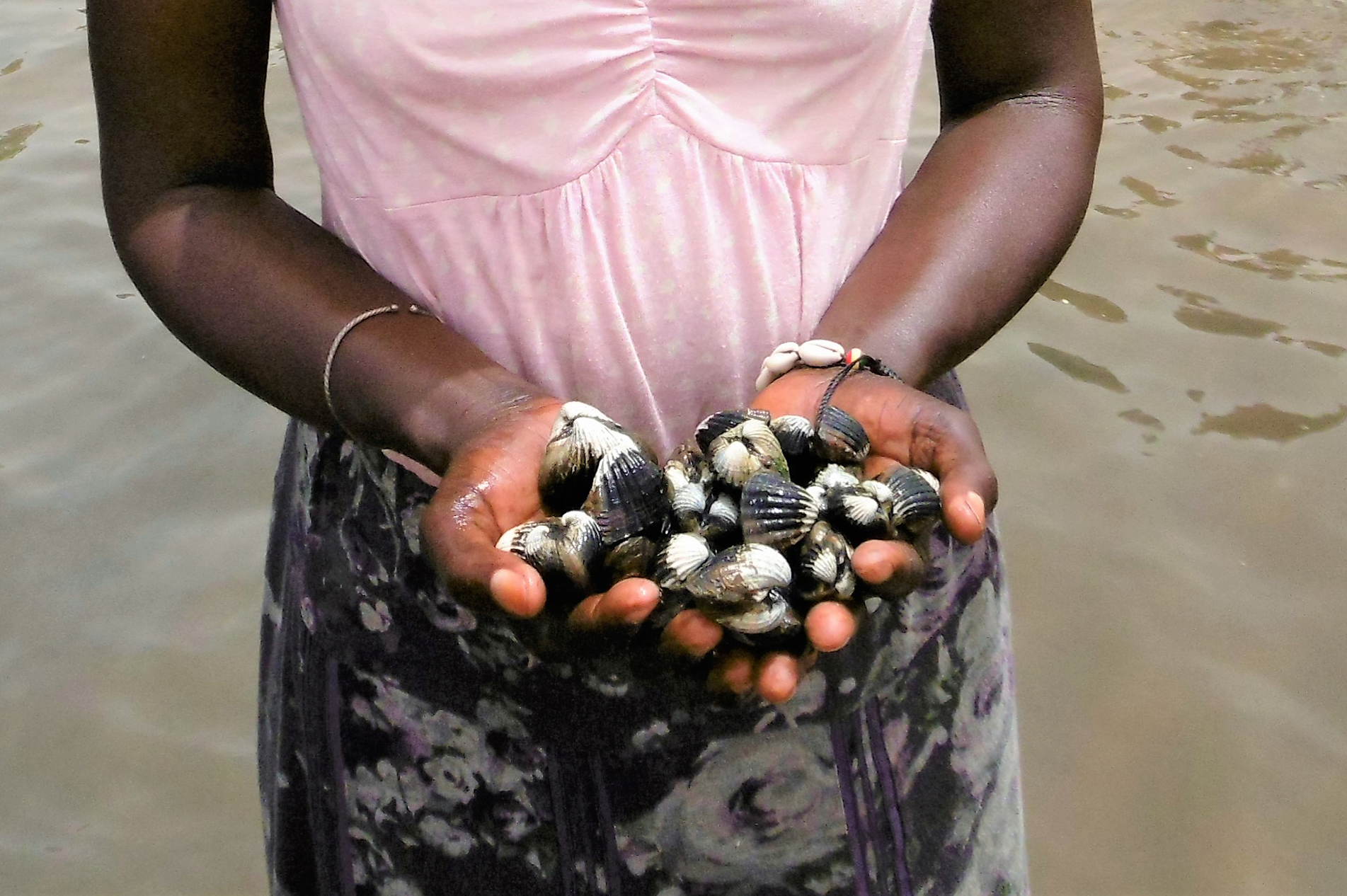
Ecotourism in Mar Lodj Island. Senegal
The continuous advance of the sea and the salinization of arable land have led to the abandonment of agricultural activities and the reduction of fishing activities. Its collapse has caused a significant emigration of men and youth from the island to other regions, increasing the work burden for women, who are left in charge of feeding, educating and providing health care for their families. The Tourist Welcome Office, a local initiative managed by a group of young people from Mar Lodj, aims to contribute to the reduction of youth unemployment and emigration in Mar Lodj based on sustainable tourism.
At Santander BEST Africa, with the collaboration of the NGOs PROSALUS and Enda Graf Sahel, we support the consolidation of the tourist welcome office and the training of twenty "eco-guides" who will offer travellers information on the cultural heritage and characteristics of the island's ecosystems.
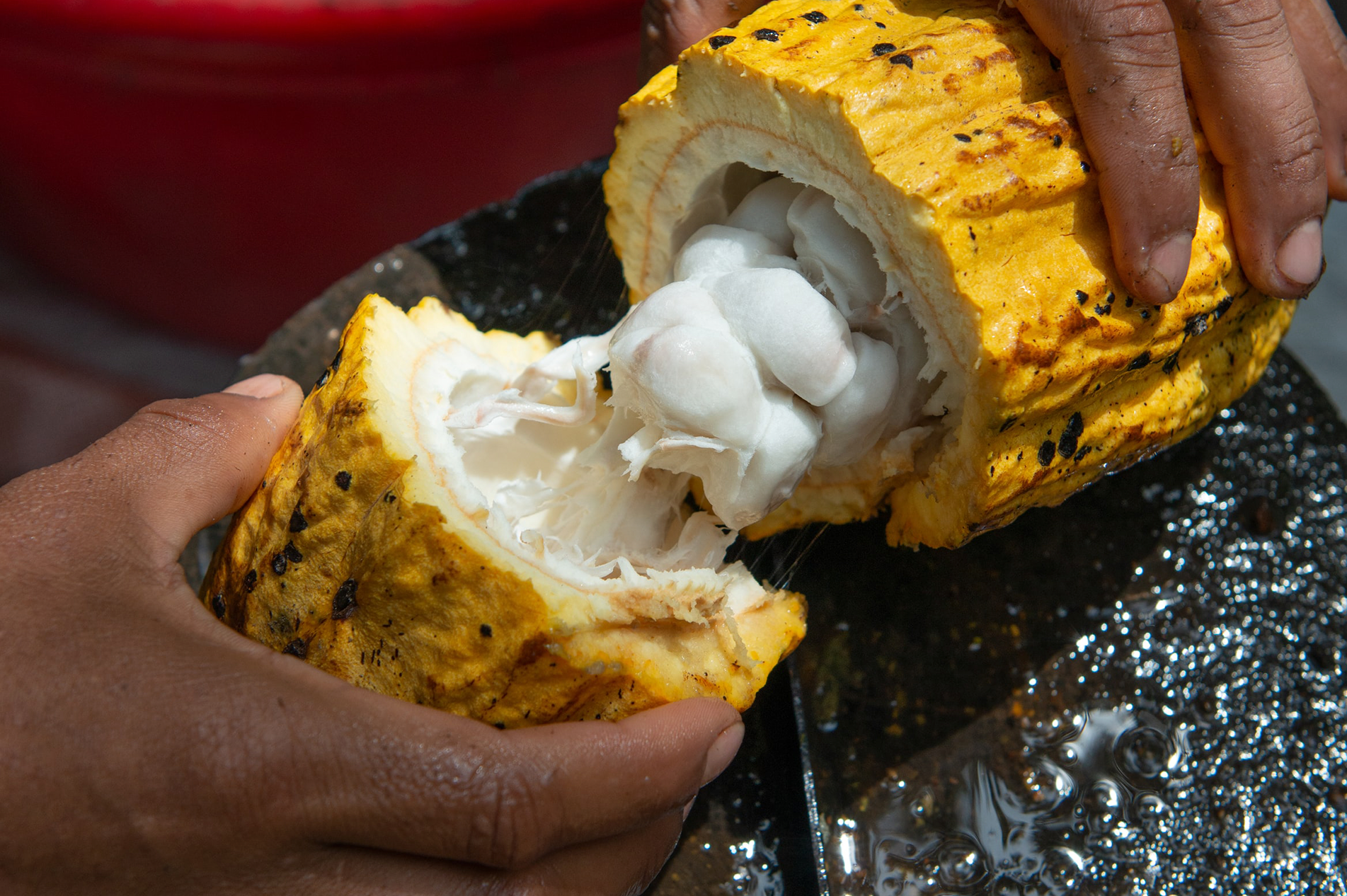
Women entrepreneurs of Mar Lodj. Senegal
On Mar Lodj Island, the "Women" federation brings together all the women in the community who are involved in the processing of fruit, cereals and fish products. In turn, the women artisans of the island are grouped into independent Economic Interest Groups (EIGs). Despite their commitment to the work they do, production is not sufficiently visible and they often have liquidity problems.
With this project, developed in collaboration with PROSALUS and Enda Graf Sahel, we have trained and accompanied 100 artisan women and transformers of local products from Mar Lodj in the development of their business, strengthening their skills in the production and marketing of their products. The aim is to contribute to the generation of greater income as a means of ensuring the continuity of their businesses.
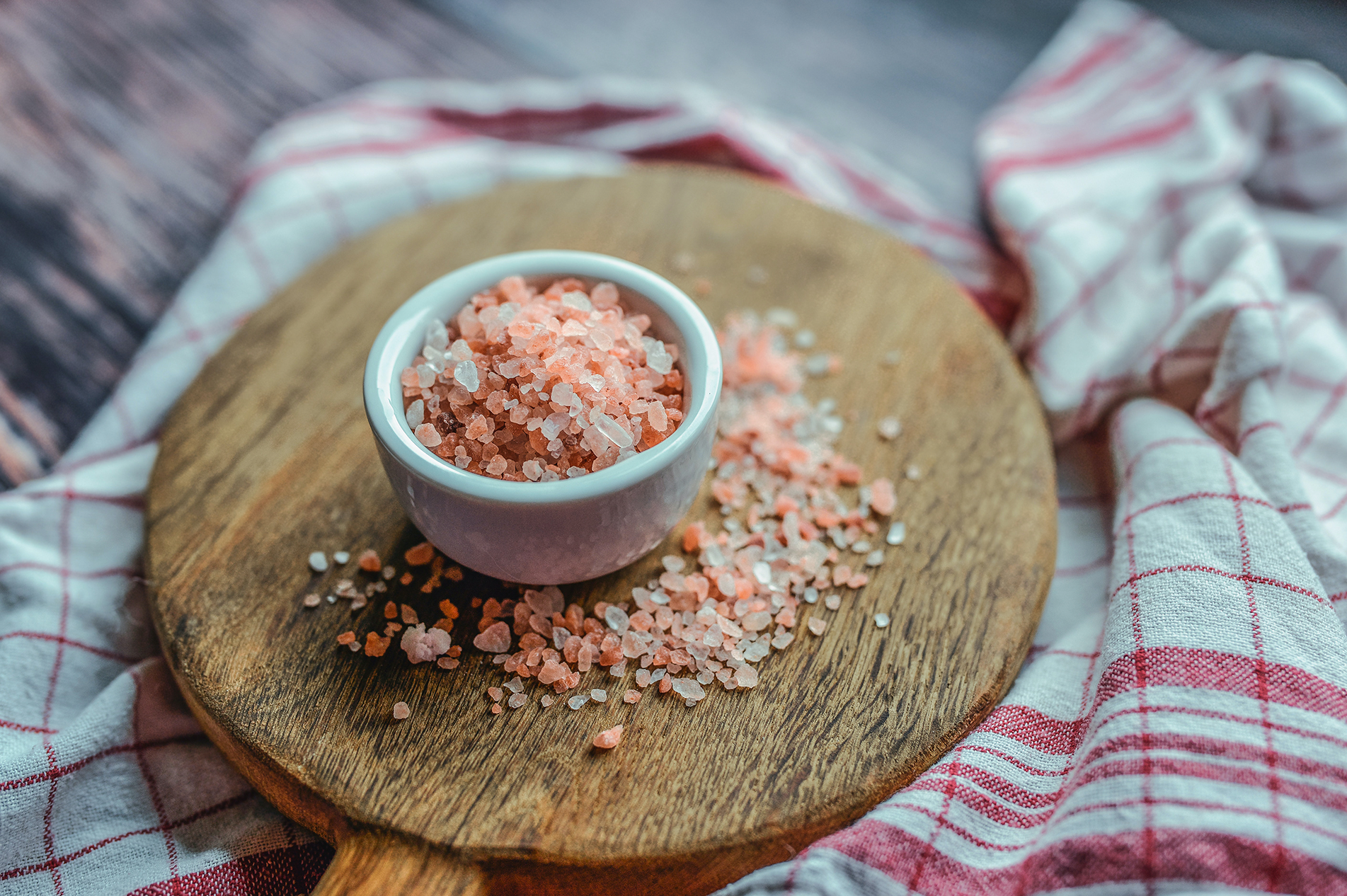
Exploitation and commercialisation of salt in Faoye. Senegal
Due to its proximity to salt water from the sea, by the irrigation of open plots, the scarcity of rain and the absence of humidity, the community of Faoye has important assets for the exploitation of salt. The DIAM BOUGOUM women's association, which brings together 60 women from the community, has been exploiting and marketing salt for years. However, the women must face many obstacles to ensure the income derived from this activity.
On behalf of Santander BEST Africa, with the collaboration of PROSALUS and SAPOP, we support the women's association by facilitating the acquisition of new materials and equipment and offering training in management and accounting and in the marketing and commercialisation techniques necessary to increase the income derived from the exploitation of salt in Faoye.
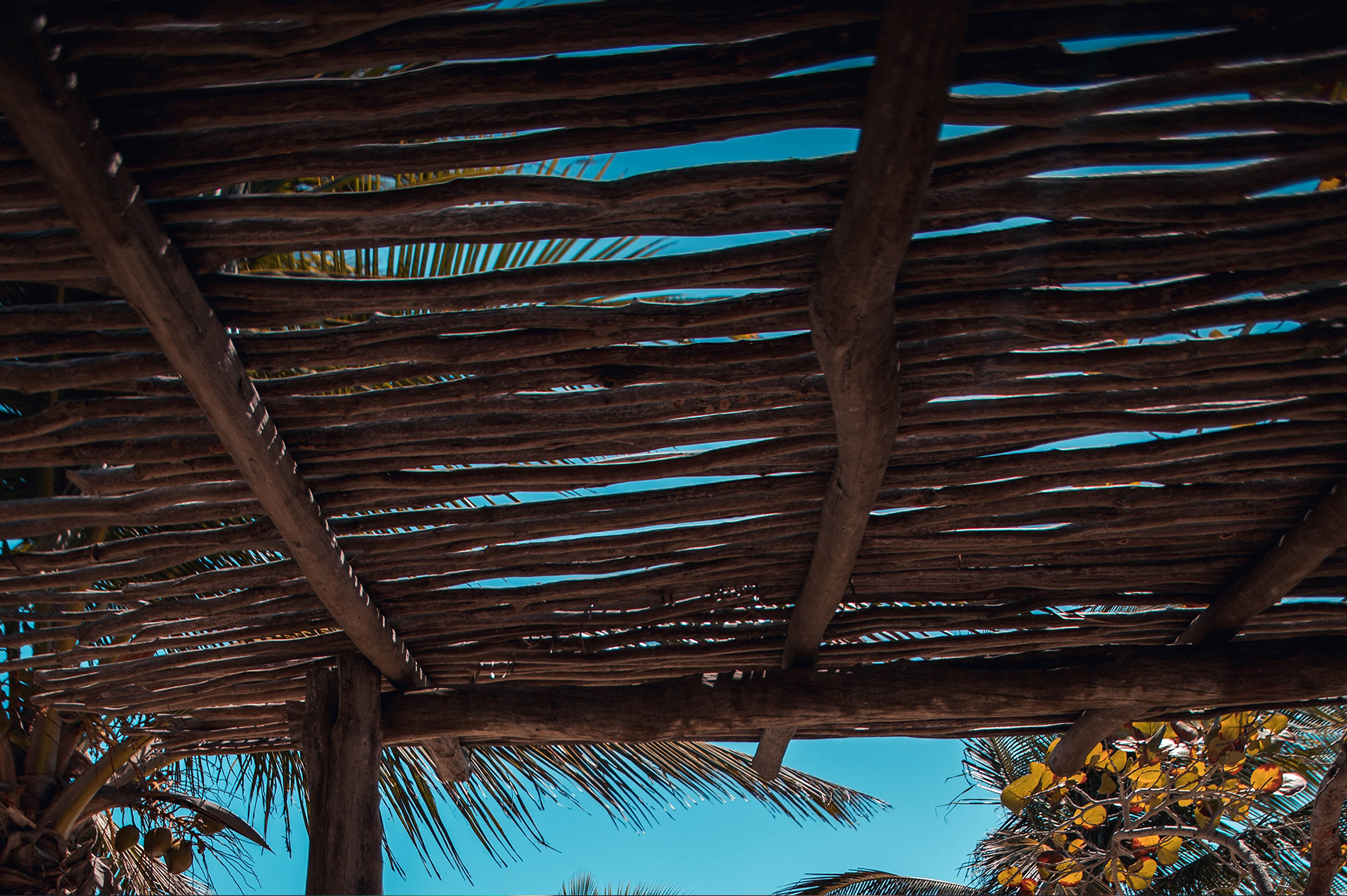
Ndamelor Group. Senegal
A group of 41 women from the community of Faoye have formed the Ndamelor Group. Most women are housewives, some are seamstresses. The president of the Association, Maimouna Labou, is a community agent in charge of early detection of malnutrition cases in Faoye village.
On behalf of Santander BEST Africa, with the collaboration of the NGO "Solidarity Camps" and the technical support of SAPOP, we support the creation of a small business dedicated to the rental of equipment for the organization of social or cultural events in the area of Faoye. The idea is to provide a service to companies and individuals interested in organizing events that require the assembly of a canvas or tent to protect attendees from the sun or rain and to provide the necessary equipment and utensils to serve a large number of potential guests. The launch of this business will help to generate a modest income for the Association and its members and for the maintenance of a program against child malnutrition which has been developed since 2003 in the village of Faoye. This project includes the acquisition of the necessary equipment to start-up the business and the construction of a small warehouse to store the materials and equipment owned by the Association.
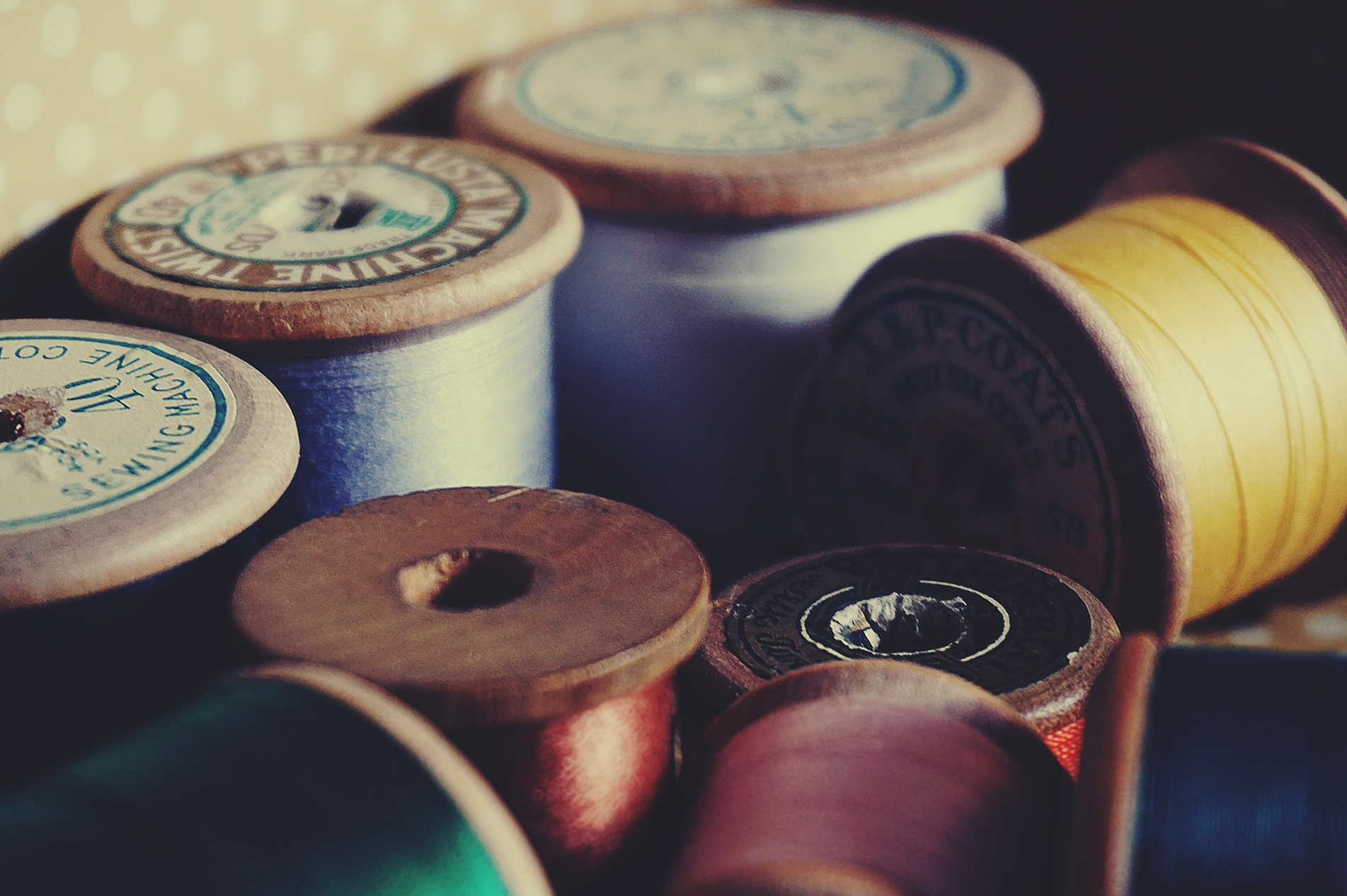
Kalogen Group. Senegal
The women of Kalogen initially started to grow vegetables in the community garden. In 2019, they began training in sewing techniques as part of a training programme run by Spanish entrepreneur Laura del Pozo, creator of the PeSeta brand. As a result of this training, the women of Kalogen began to manufacture bags, pillowcases, spectacle cases or wallets that they sell at the Casamance Cultural Centre, a space that acts as a volunteer reception centre and tourist accommodation for travellers visiting the region.
At Santander BEST Africa, with the collaboration of "Solidarity Camps" and the technical support in the field of the NGO "Cineastas en Acción", we support Kalogen by facilitating the purchase of sewing equipment and materials and by financing a specific training programme in sewing techniques based on the traditional Casamance patterns.
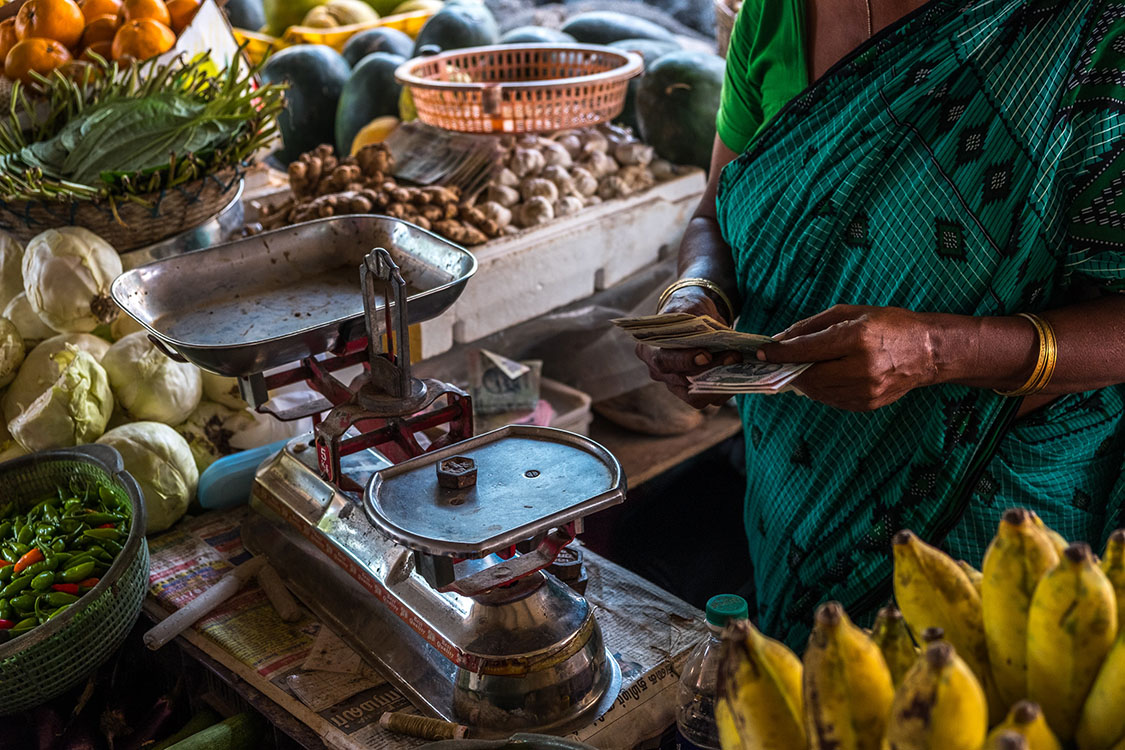
Promotion of entrepreneurship in the commune of Djembering Senegal
The project, developed in collaboration with the XALEY Foundation and the municipalities of Boucotte, Djembering and Cabrousse, aims to provide 50 women in the area with opportunities in the tourism economy sector by developing skills linked to entrepreneurship: training in entrepreneurship and marketing and business management techniques; and in techniques for drying and processing fruit and vegetables and cereals. The training is carried out in modules of 40 hours of training aimed at alternate groups of no more than 25 women per group.
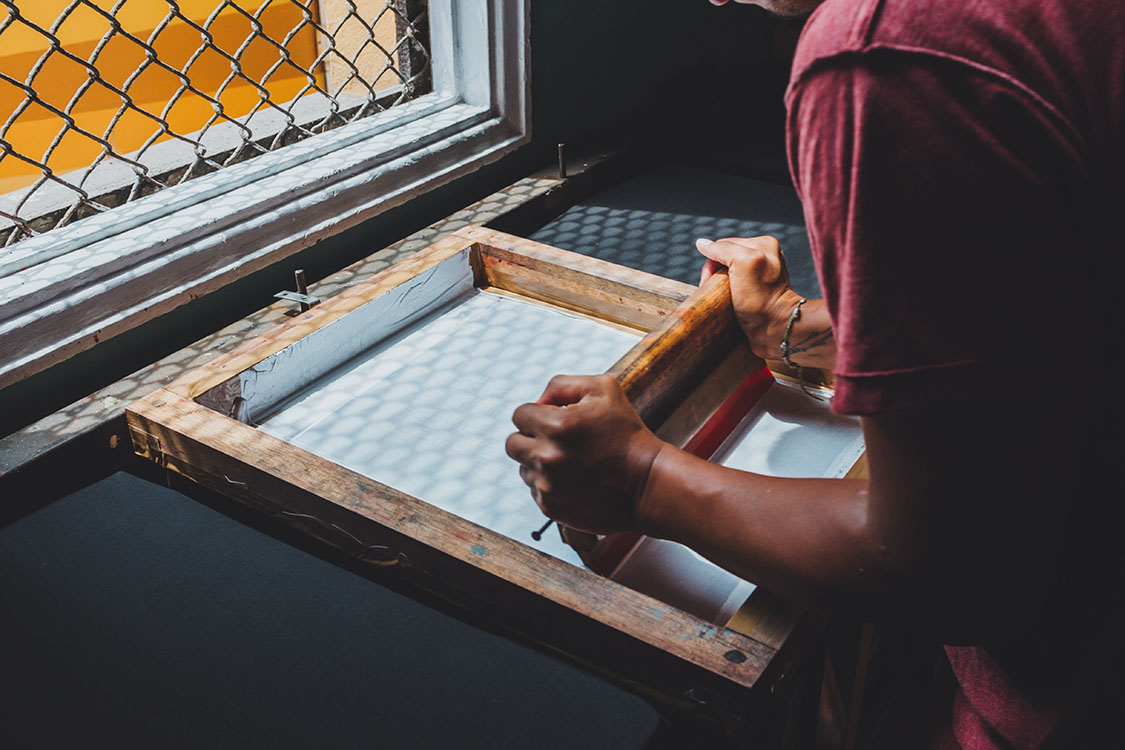
Carabane Island Handicraft Centre. Senegal
The Carabane Tourism and Craftwork Actors Association, AATAC; is finishing the construction of the Carabane Island Handycraft Centre. At present, there is already a half-built building with fourteen spaces around an interior patio for the sale of handicrafts by members of the association. The work stopped some years ago due to lack of funding. The craftsmen and women of Carabane have no choice but to display and sell their products in the courtyards or gardens of their own homes, located in different areas of the town, facing problems of space and poor visibility.
This project involves the completion of the Craft Centre on the Island of Carabane. The association of craftsmen and women of the island will have their own space for the artisans to group their offer of local crafts and gain visibility among the travellers who visit the island. The centre is located in a strategic part of the island, on the central square, next to the colonial church, a must-visit location for all travellers visiting Carabane.
The planned works include masonry, walls, floors and bathrooms; the installation of a concrete floor in the courtyard of the building and inner spaces; the construction of the roof; the placement of woodwork on the doors; and finishing the walls with plaster and paint.
.jpg.transform/rendition-lg/image.jpg)
Faoye Ecotourism Camp. Senegal
The Faoye Ecotourism Camp is a beautiful and well-kept camp managed by the Faoye community under an agreement with the Spanish Active Ecotourism Association "Campamentos Solidarios". They promote ecotourism camps that serve as employment generators. They are built and managed in coordination with the host communities in areas with scarce economic resources and high ecological or cultural value.
At Santander BEST Africa we support this project in collaboration with the NGO "Campamentos Solidarios". We support the renovation of the camp's hut roofs and help to ensure the continuity of the business and employment during the pandemic.

Lifanfañe Casamance. Senegal
In Oussouye, at the heart of the Lower Casamance, 15 women of the diola ethnic group living in this community intend to train and form a partnership to begin offering their services as responsible tour guides to travelers visiting the Casamance.
This project is developed with the collaboration of “Campamentos Solidarios” Association and the NGO Filmmakers in Action. We will provide technical support for the constitution of an economic interest group integrated by these 15 women from Oussouye and their comprehensive training as tourist guides with emphasis on the interpretation of the cultural and natural heritage of the Casamance region.

Índigo Senegal
The SAM SAM III center is located in Pikine, a town 20 kilometers from Dakar. It is a training center that serves about 100 young people who, at the end of their studies, can either continue with an internship or receive a microcredit to start a small business. The handicraft cooperative employs 15 women between the ages of 21 and 30, dedicated to the textile business.
Santander BEST Africa supports this project with the collaboration of Sister Regina, of the Religiosas del Niño Jesús, and the Mamah Africa Association. We intend to facilitate the development of a new line of business based on the recovery of the indigo textile tradition in Senegal. The project contemplates the recovery of indigo dyeing and weaving techniques, improving the cooperative's current product offer, strengthening the management team and technical support for access to new markets and sales channels. The project will train 15 women, four of whom will be directly responsible for implementing the new line of business.

Professional capacity building in the hotel industry. Senegal
The mission of the Kalasanz Women's Promotion Center is to raise young women's awareness of their basic rights in terms of gender equality, education and health, and to offer them vocational training opportunities so that they can aspire to economic independence and exercise their rights through insertion into the job market.
Santander BEST Africa is developing this project in collaboration with Manos Unidas. We intend to equip the centre’s kitchen and restaurant and to start training 45 young people and three trainers in hotel management. In addition, we offer the graduated students support for the constitution of Economic Interest Groups (EIG), which they manage themselves.

Fimela Farm School. Senegal
The population of the rural community of Fimela in the Sine Saloum Delta is highly vulnerable in terms of food security. Agricultural yields and food production have been affected by climate change and the impact of the COVID-19 health crisis.
At Santander BEST Africa we developed this project in collaboration with Enraíza Derechos and SAPOP. We intend to strengthen the horticultural production capacities of 15 women from Fimela in the farm school and organic garden launched by SAPOP in 2018. Through this action we boost horticultural production, self-employment and the generation of stable income for women in the community throughout the year.

Hotel industry internships at Faoye. Senegal
La Source aux Lamantins is a hotel school that offers training and internships in the hotel industry, pastry making, bakery and agro-ecology to underprivileged young people from the Fimela area. Founded by the Senegalese entrepreneur Anne Katherine Senghor Beye, the hotel school is currently managed by the NGO Vivre Yakar Djilor.
Santander BEST Africa developed this project in collaboration with Solidarity Camps and the NGO Vivre Yakar Djilor. We support professional internships for recent graduates in one of the camps integrated in the Santander BEST Africa network in Senegal, the Faoye Solidarity Camp.

Ebecan Casamance. Senegal
The village of Seleki is located in the community of Enampore, an increasingly popular destination for tourists. The Seleki and Enampore campsites are frequently visited by groups of travelers visiting Lower Casamance.
Santander BEST Africa developed this project in collaboration with the Spanish Association of Active Ecotourism "Campamentos Solidarios". Our goal is to facilitate the implementation, by a group of 12 women from the Seleki community, of a bicycle rental business aimed at travelers visiting or staying in the camps of Seleki or Enampore and the neighbors of this community.

Gender and entrepreneurship in Mar Fafaco. Senegal
The economy of Ile de Mar Fafaco, in the Sine Saloum Delta in Senegal, is based on agriculture and fishing, two sectors that are particularly threatened by the impact of climate change. The erosion of coastal areas and the encroachment of the sea on the mainland are leading women who collect shellfish to go further and further out to sea to catch enough fish for their own consumption and to sell the surplus. The salinization of the land is also forcing women and young people on the island to abandon agricultural activities.
The project aims to help strengthen the resilience of women who process fish products, in a post-COVID context, on the island of Mar Fafaco. The initiative, developed with the collaboration of Enraíza derechos (formerly PROSALUS), includes, among other actions, the improvement of equipment and materials of the five associations of women processors of fishery products on the island, composed of a total of 75 women and 10 men; training in marketing and commercialization techniques, improvement of product packaging; and access to a warehouse for sale in the capital of Senegal, Dakar.
Marketing of agricultural products in Nyassia and Enampore. Senegal
Los productos que obtienen de sus huertas las asociaciones de mujeres agricultoras de las comunidades de Nyassia y Enampore, en la Baja Casamance, en Senegal, se destinan primero al autoconsumo y después, el excedente, a la venta. Sin embargo, las mujeres no disponen de puntos de venta en mercados o supermercados ni en zonas de paso de posibles clientes.
El proyecto pretende fortalecer el componente de marketing de los productos hortícolas de las mujeres de Nyassia y Enampore. La iniciativa, desarrollada con la colaboración de Enraíza Derechos (antes PROSALUS), contempla la instalación de dos puntos de venta en zonas, accesibles y seguras, próximas a la carretera nacional; la disponibilidad de un vehículo para el transporte de las hortalizas de las 120 agricultoras que conforman las asociaciones de agricultoras de ambas comunidades, y la formación, en técnicas de marketing y comercialización de productos hortícolas, de las mujeres que participan en el proyecto. Dado que la producción de hortalizas se da en períodos muy específicos, los quioscos se aprovechan durante los períodos sin producción para la exhibición y comercialización de productos de artesanía propios de la Baja Casamance.

Malenke and Bassari Cultural Associations. Senegal
Visits to communities such as Badian, Sibikilling Bassari or Tambanoumouya are frequently included in the tourist circuits that take place in the southeast of Senegal, in what is known as Bassari Country.
The hiring of traditional festivals, with music, dance and masks, organized in Malenke or Bassari villages by tour operators is a valuable source of income for these communities. The income generated by the organization of these celebrations is usually kept in common funds for use in emergency situations. Moreover, the festivities represent excellent occasions to promote and share with visitors the customs and traditions of the different ethnic groups that coexist in this area of Senegal. Declared a World Heritage Site by UNESCO in 2012, the Senegalese region of Kedougou is located in the southeast of Senegal in an area of forests, valleys and mountains characterized by its great cultural and environmental richness.
The project contemplates the constitution of the "Guiki Sembe" cultural association of Badian and the professionalization of the activities developed by the group of 32 women and 4 men in charge of the organization of celebrations of the Malenke culture in the Badian community. The initiative, developed in collaboration with the NGO "Campamentos Solidarios", includes the renovation of equipment, including traditional clothing and ornaments and musical instruments for the association. The project is a first pilot project to support the establishment and professionalization of cultural associations to help preserve and disseminate the cultural heritage of the Malenke and Bassari communities in Senegal.

NATURAL COSMETICS IN BADIAN
A group of five women dedicated to the production of cosmetics made from natural products seek to form a cooperative and formalise their natural cosmetics brand.
These entrepreneurs started producing natural cosmetics with the idea of solving the problems that some people encountered when using imported products that were not suited to their skin type. With the use of natural products such as shea butter, lemon, and ginger honey, among others, they observed a notable improvement in their treatments. As a result, they began to make and sell their natural cosmetics to family and friends. They have gradually been able to prove the usefulness and wealth of their natural products.
For this venture to continue its evolution, it requires professional advice and guidance to address its legalisation, commercial registration, and certification. The aim is to professionalise the manufacture of its cosmetic and hair care ranges made from natural products. The project, developed with the collaboration of the NGO Campamentos Solidarios, includes the constitution of the company, the legalisation of the brand and specialised advice on production processes adapted to national and international standards for natural cosmetics.

PROCESSING AND MARKETING OF NUTS AND FRUITS IN FAOYE
Agricultural yields and food production in Faoye have been affected by the effects of climate change: drought, erosion and salinisation of the land; and by the impact of the COVID-19 health crisis: restrictions on mobility and closure of markets and fairs. In this context, the Diam Bougoum Association, made up of 60 Faoye women, is attempting to diversify its sources of income.
The project, developed in collaboration with Enraíza Derechos, promotes self-employment and the generation of stable income for women in the Faoye community. More specifically, the intervention supports the strengthening of the capacities of the women of Diam Bougoum for the transformation and commercialisation of nuts: cashew nuts and peanuts; and fruits: mango, papaya, grapefruit or bissap. The project includes training in nut and fruit processing techniques, management, marketing and commercialisation, and the provision of equipment and raw materials to improve production processes.
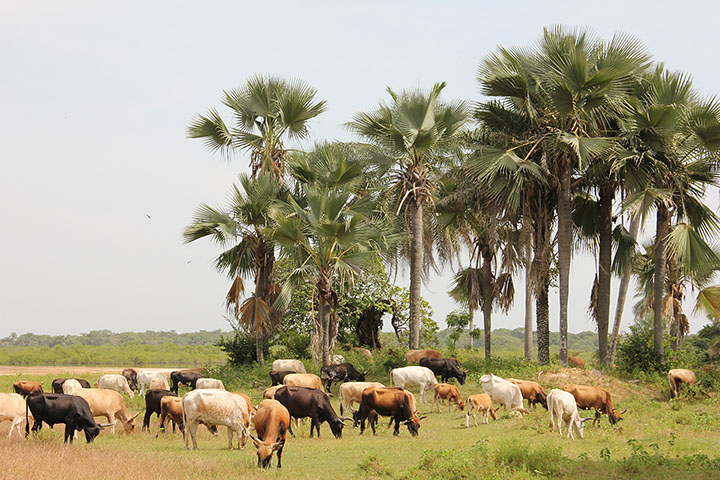
AGROTOURISM IN DJEMBERING
A group of 12 young women have created a cooperative specialising in agro-ecology and tourism in the commune of Djembering. It is the first structured enterprise in the formal economy led entirely by young women under 30 years of age in this community.
The project, developed with the collaboration of the Xaley Foundation and the commune of Djembering, envisages the start-up of an agrotourism business based on agricultural production, for the sale of garden produce to the local market and tourists; and the provision of accommodation and catering services for travellers visiting this area of Casamance. The intervention includes the provision and equipping of the agrotourism farm, training in agricultural production techniques, cooking techniques, hotel management and reception of tourists
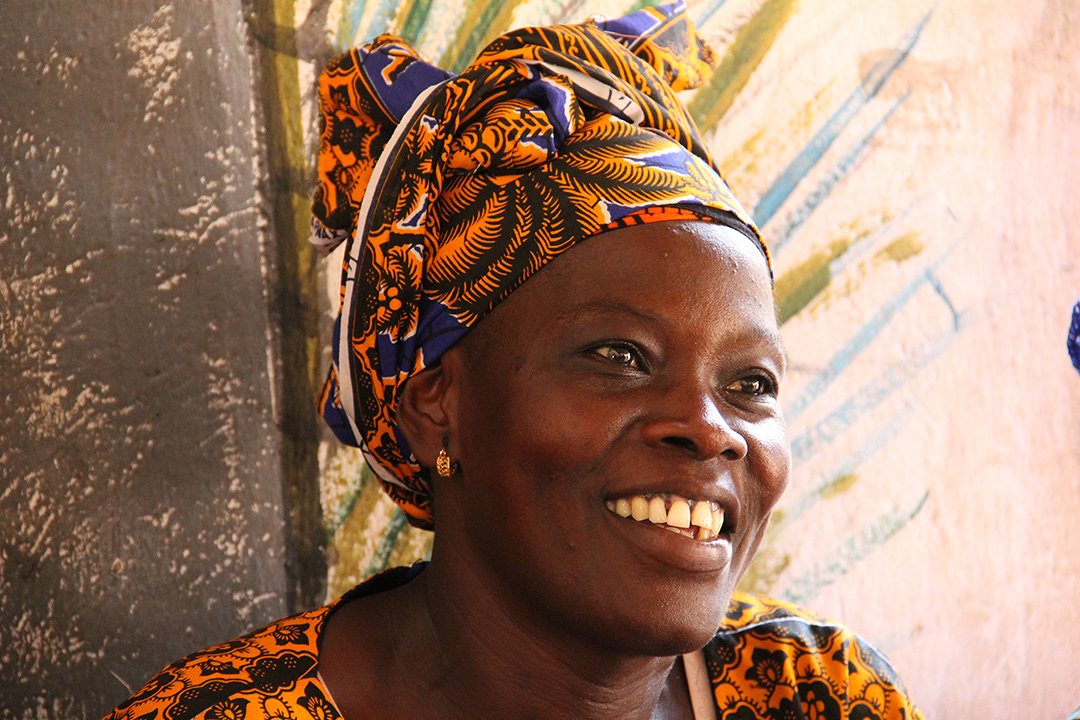
WOMEN'S COOPERATIVE OF SALEMATA
A group of 52 women from the Salemata community are dedicated to the transformation and sale of local products: monkey bread, fonio, shea butter, honey or soap. The women, grouped in a newly created cooperative, are mothers of families with knowledge and experience in the transformation of these products, interested in starting up complementary economic activities that can help improve their, for now, meager income.

Handicraft workshop in Nyassia
The women's group of the commune of Enampore, an organisation that aims to ensure the economic and political autonomy of its members, seeks to support the reactivation of production and the revaluation of local heritage through entrepreneurial initiatives carried out by women.
In the district of Nyassia, located in the commune of Enampore, textiles and handicrafts are produced that are undervalued or even in danger of disappearing, such as Bandial weaving and creation of mats and baskets from palm leaves. To prevent these traditions and manufacturing techniques from being lost, the women's group of Enampore is working on the construction of a handicraft workshop to enable the know-how to be passed to younger generations, to participate in the enhancement of cultural identity and social cohesion, and to show the public the manufacturing process of these handicrafts. In addition to the construction of the workshop, the project, developed in collaboration with the NGO Enraíza Derechos, includes the development of training activities in handicraft production techniques. The initiative will help generate income for 22 women from Nyassia who are members of the Enampore women's group.

Textile workshop in Thies
This project is aimed at facilitating the expansion of a training project, promoted by the NGO Formación Senegal in the municipality of Thies, which has enabled the financing of basic equipment to set up a textile workshop and the training and employment of 12 women in its first year of operation. The students come from disadvantaged neighbourhoods in the city of Thies. In some cases, they come from dysfunctional families with serious family burdens. Some of them are or have been prostitutes. They are a group of women with a great predisposition to improve their living conditions and a high capacity for learning, commitment, collective organisation, and leadership qualities.
The initiative envisages the creation of a cooperative to provide recurrent employment for women in situations of social vulnerability. The young women involved in the project are now under the tutelage of the Congregation of the Sisters of the Good Shepherd, whose mission is to work to ensure the social integration and economic self-sufficiency of these women. The current workshop will be upgraded into a larger textile production workshop to provide training and sheltered employment for its employees. The project includes the purchase of equipment for the workshop: sewing machines, finishing machines, buttonholes, stitching, electric scissors, and storage furniture; the purchase of raw materials; and teachers' and coordinators' fees.
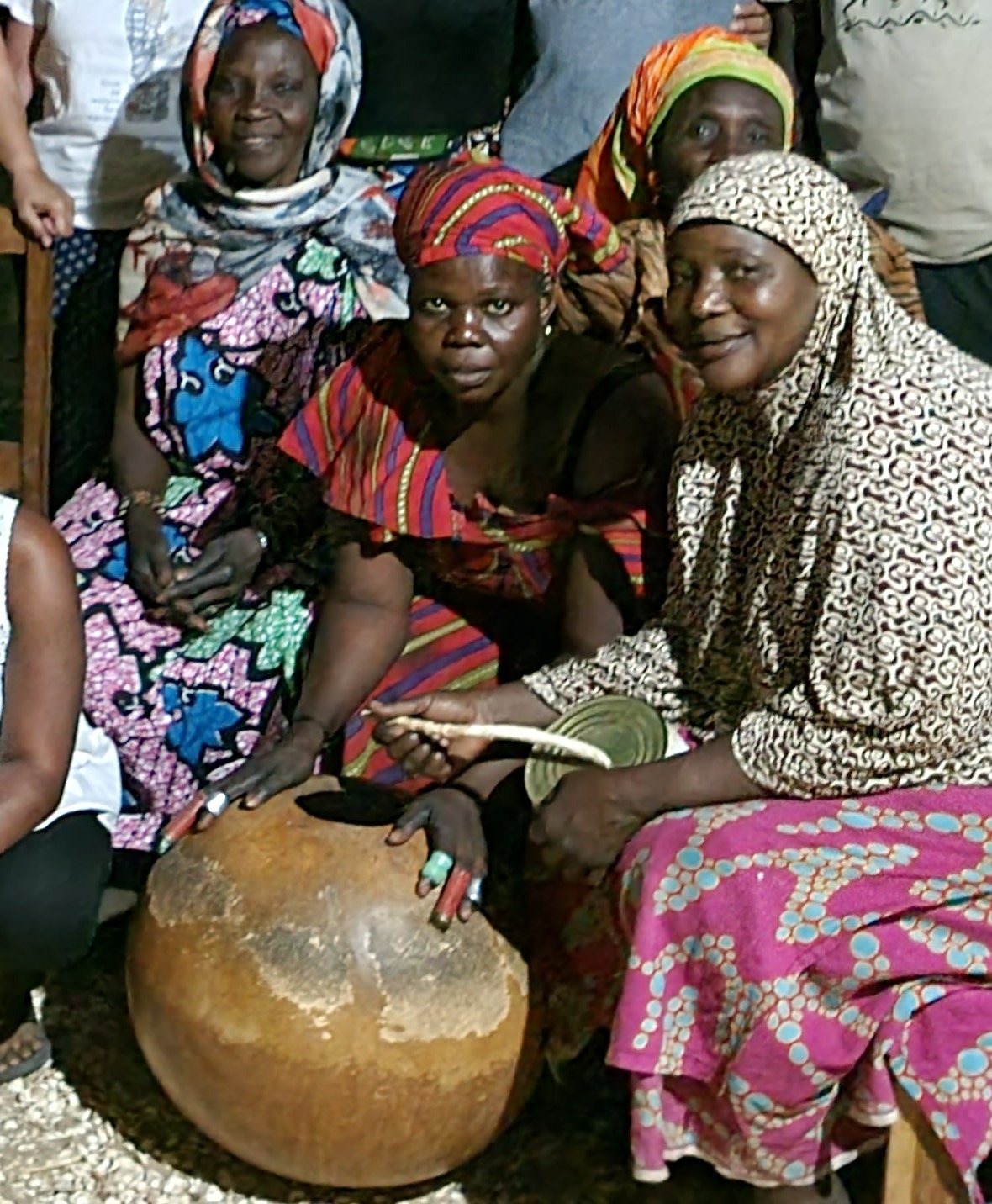
NaNor Association of Faoye
The NaNor Women's Association of Mbin Ndigue, made up of 60 women from the Faoye community, is starting a cereal storage and sales business. Every year, the prices of these basic staples rise; as it is not possible to store them for a long period of time, cereals are bought at increasingly expensive prices, which is a significant detriment to the precarious economy of the women of the association.
The aim of the project is to facilitate the establishment of a business by this group of women based on the commercialisation of cereals stored in a newly built granary. The initiative will also serve to alleviate the economic burden caused by the increase in cereal prices in the community as a whole. The project, developed in collaboration with the NGO Campamentos Solidarios, involves the construction of a granary for the storage of sacks of grain and a first purchase of raw materials for marketing. The women will start their business in their own village and then sell their produce at a fair price in the various villages around Faoye.
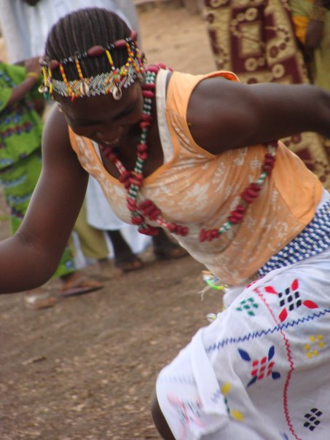
Bantannani Cultural Association
The Bantannani Cultural Association helps to preserve the traditional dances and celebrations of the Malenke ethnic group in Tambanoumouya, a small community located near the Badian solidarity camp in Bassari country. A group composed of 21 women, accompanied by four musicians, preserve, and share with visitors the traditional celebrations of the Malenke, a unique expression of the heritage of the animist culture that survives in this part of Senegal. These celebrations are hired by groups of travellers visiting the tourist camps located in the vicinity of the Niokolo Koba National Park and Bassari Country. This generates income that is set aside in a common fund to be used to cover the community's needs.
The project aims to help strengthen the Bantannani Cultural Association of Tambanomouya. The initiative, developed in collaboration with the NGO Solidarity Camps, includes the constitution of an Economic Interest Group (EIG) to regulate and professionalise the activities of the Association and the updating of the Bantannani group's equipment, including the purchase of traditional costumes, beads, and musical instruments.
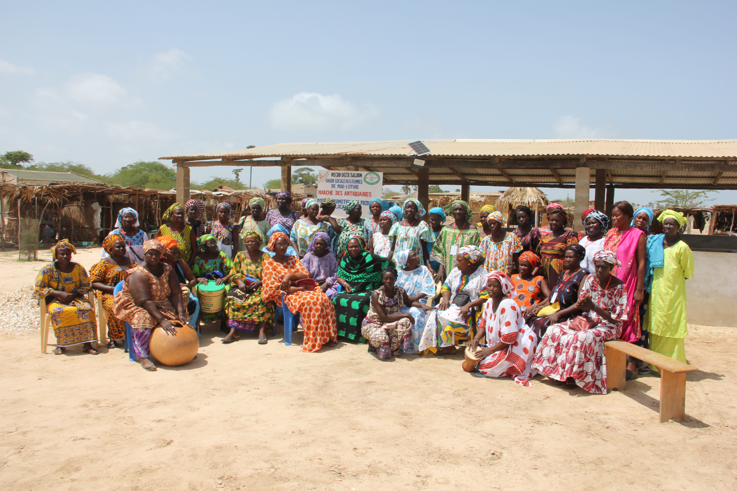
Artisan women of Mar Lodj
Mar Lodj, a small island in the Sine Saloum Delta, has great tourism potential: the mangrove forests and numerous bird species attract many visitors. Although activity in this sector has been badly affected by the health crisis caused by the coronavirus pandemic, 2022 has seen a significant upturn in the number of tourists visiting the island.
Forty-five artisan women from Mar Lodj have been making and selling handicrafts for years. All of them were beneficiaries of an initial grant for the purchase of materials and training in production techniques, however, they still lack management skills and lack attractive sales outlets for the development of their business. With this intervention, developed in collaboration with the NGO Enraíza Derechos, new points of sale, kiosks, will be built for the craftswomen. The construction will be carried out in collaboration with young female engineers, specialists in sustainable construction: use of earth, local materials, and recycled waste (plastic bottles, straw, containers, etc.). These experts will help train young masons from the community in these new sustainable construction techniques to carry out the works. Training sessions are also planned to strengthen the artisans' accounting and commercial management skills.

Social entrepreneurship in Mar Lodj
The XOYOX youth association has launched an initiative to collect rubbish and reuse plastic bags for the installation of plant nurseries in Mar Lodj. Their aim is to contribute to improving the island's environment while developing green jobs for young people in the community.
The project, developed in collaboration with Enraíza Derechos, includes the acquisition of waste collection equipment, the construction and fitting out of a depot to separate and sort waste, strengthening the management and accounting capacity of the youth association, and raising awareness in the community. The waste will be used for the development of plant nurseries, which will then be sold on the island of Mar Lodj itself.
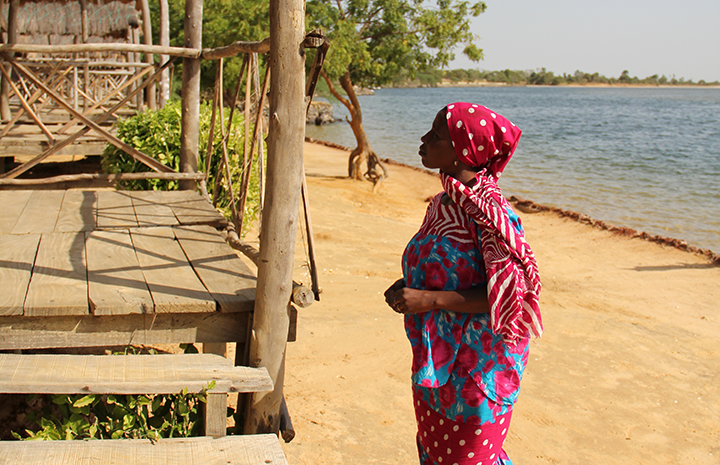
The Faoye Gallery
A group of five women from the village of Faoye, led by Khady Faye, manager of the Faoye Solidarity Camp, have decided to refurbish the former headquarters of the NGO Solidarity Camps in Senegal, currently unused, to create a gallery or eco boutique to sell products made by entrepreneurs from the Santander BEST Africa network in Senegal.
The business model is based on the deposit and sale of handmade products with a commission to be negotiated between the women who manage the gallery and the entrepreneurs. The project, developed with the collaboration of Campamentos Solidarios, includes the refurbishment, fitting out and equipping of the premises and the expenses, associated with the constitution of the company by the promoters of the initiative.
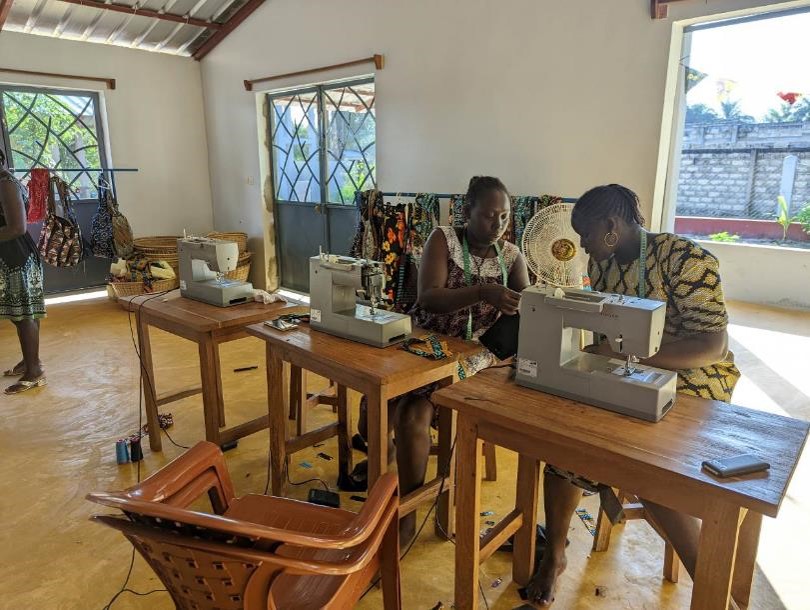
Textile handicrafts in Oussouye
In 2022, this group of women dedicated to textile crafts in Oussouye received a visit from Palamama, a Spanish micro-enterprise dedicated to the creation and sale of textile accessories. The creators of Palamama decided to carry out their production in collaboration with the cooperative. The craftswomen are receiving many orders, also from Spain, however, they are having difficulties fulfilling them. They need to improve their equipment and receive training in management skills. Their products are already sold in some hotels, cultural centres, and street markets.
The project, developed in collaboration with the NGO Campamentos Solidarios, provides grants for the purchase of sewing machines and training in traditional pattern making, marketing and commercialisation techniques.
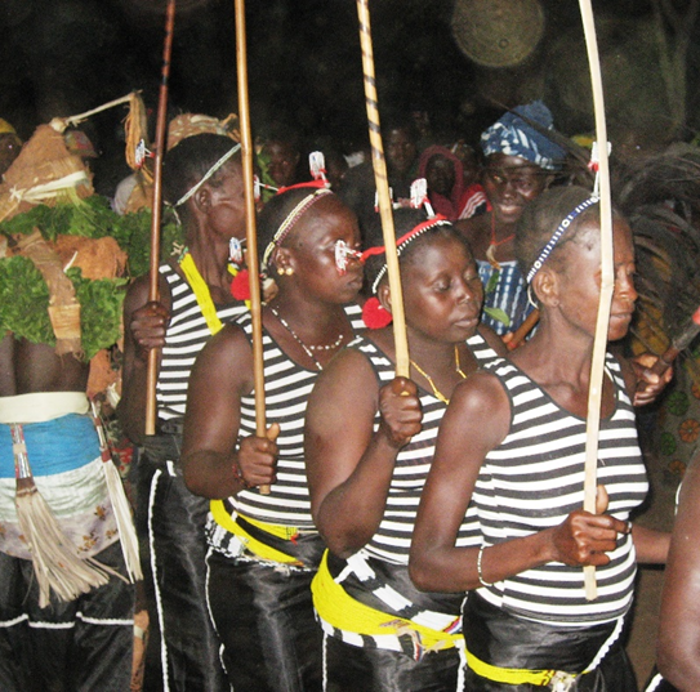
Kanine Grediare Cultural Association of Sibikiling Bassari
The Association consists of 26 members, 14 women and 12 men. They all belong to the Sibikilling Bassari community. These celebrations, an expression of the heritage of the animist culture that survives in this part of Senegal, are contracted by tour operators working in Bassari Country. The generated income helps to improve the family economies of the members of the Association and to cover community expenses.
The aim of the project is to collaborate in the conservation of the traditions of the Bassari ethnic group, in a region declared a World Heritage Site by UNESCO for its ethnic richness and cultural diversity. The project, developed with the collaboration of the NGO Campamentos Soidarios, contemplates the renovation and improvement of the traditional costumes and masks used in the Bassari celebrations as a means to reinforce the economic, social and cultural potential of the activities developed by the Association.
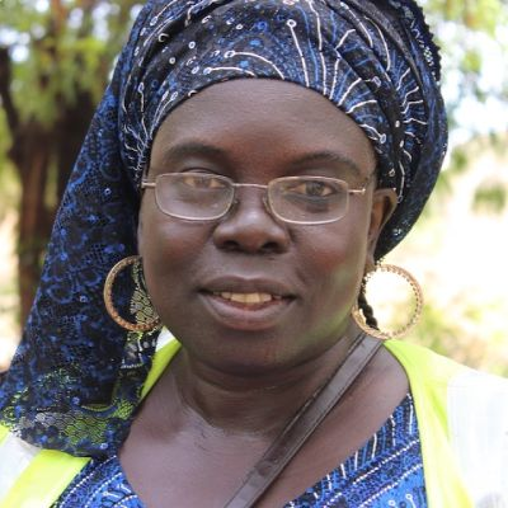
Agroecology and food security in Casamance
A project promoted by Mariama Sonko, a social entrepreneur who leads the Nos Sommes la Solution movement in Senegal, which aims to promote and accelerate the processing of sustainable agricultural products, mainly fruit and vegetables, for the production of jams, juices, broths and other condiments, by the Association of Young Farmers of Casamance, AJAC Lukaal. The processing of these fruits and vegetables promotes sustainable agriculture and local consumption, improves producers' incomes, creates employment and, finally, helps to maintain a healthier diet as these are organic products that do not involve any industrial processing. The promotion of these foods based on local natural products also helps to preserve and conserve native plants at risk of extinction.
The project, developed in collaboration with the NGO Campamentos Solidarios, includes the purchase of a solar drying oven for the processing of sustainable agricultural products and training for a group of 11 young people from the Association.
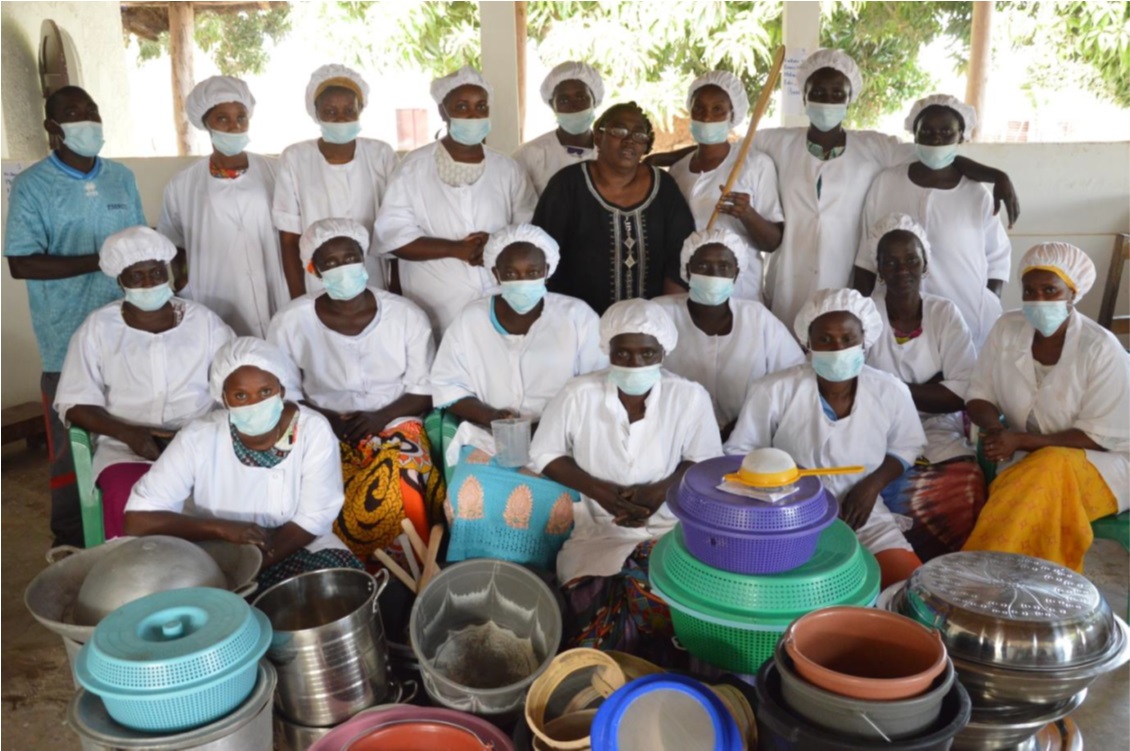
The factory of the women of the south
In 2020, 37 women from the villages of Djembering, Boucotte and Cabrousse received support from the Xaley Foundation and Santander BEST Africa to attempt to take advantage of the economic opportunities offered by tourism development in Lower Casamance in southern Senegal. Twenty of these women participated in a program specializing in fruit and cereal processing to help develop an economy based on the commercialization of their products and created a company: the GIE Kuroka of Diembering. The business is currently operating and helping to generate income for the women members. However, the lack of workspace and adequate materials slows down the pace of production thus preventing the necessary income needed to make a living from this economic activity alone.
The new project aims to provide continuity and reinforce the original project by offering the 20 women of Kuroka de Djembering the necessary support to improve and increase their production. To this end, the project includes the construction of premises to operate as a factory for the transformation, packaging, and preservation of their products; the provision of the necessary equipment to carry out the transformation, packaging and preservation activities; and complementary training in management and strategic planning for the women in charge of managing the business. The initiative, developed in collaboration with the Xaley Foundation, includes support for the training of a new group of 50 women from nearby villages interested in starting a business in this sector.
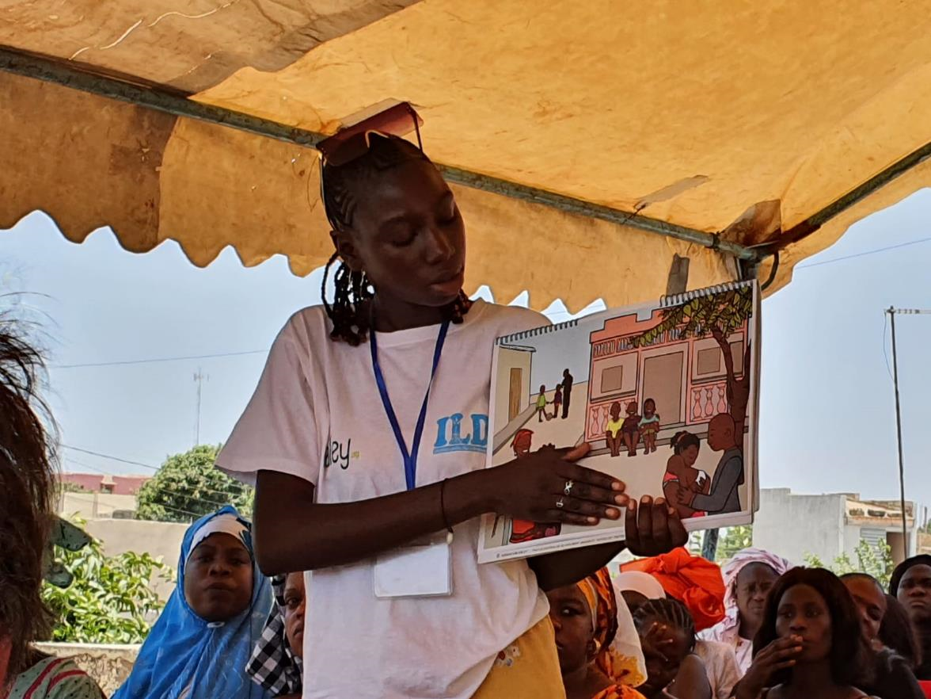
Empowerment and Training Center for Adolescents in M'Bour
In 2020, 37 women from the villages of Djembering, Boucotte and Cabrousse received support from the Xaley Foundation and Santander BEST Africa to attempt to take advantage of the economic opportunities offered by tourism development in Lower Casamance in southern Senegal. Twenty of these women participated in a program specializing in fruit and cereal processing to help develop an economy based on the commercialization of their products and created a company: the GIE Kuroka of Diembering. The business is currently operating and helping to generate income for the women members. However, the lack of workspace and adequate materials slows down the pace of production thus preventing the necessary income needed to make a living from this economic activity alone.
The new project aims to provide continuity and reinforce the original project by offering the 20 women of Kuroka de Djembering the necessary support to improve and increase their production. To this end, the project includes the construction of premises to operate as a factory for the transformation, packaging, and preservation of their products; the provision of the necessary equipment to carry out the transformation, packaging and preservation activities; and complementary training in management and strategic planning for the women in charge of managing the business. The initiative, developed in collaboration with the Xaley Foundation, includes support for the training of a new group of 50 women from nearby villages interested in starting a business in this sector.
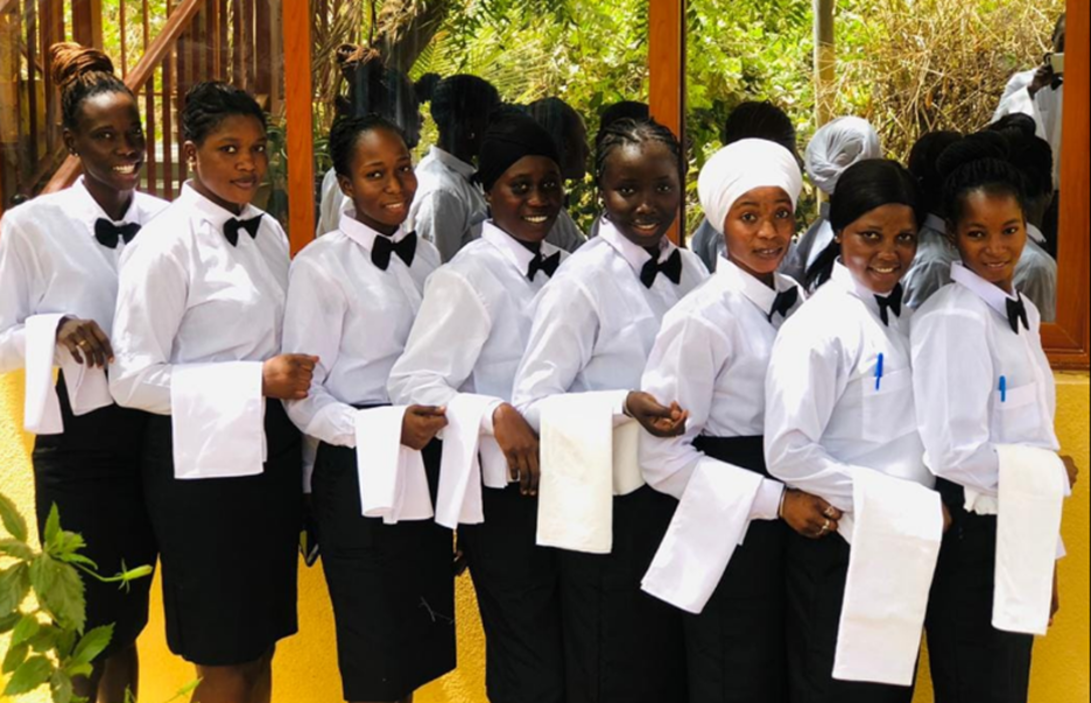
Scholarships for young people in vulnerable situations in Fimela
La Source aux Lamantins is a hotel school that offers training and internships in hotel management, pastry making, bakery and agro-ecology to underprivileged young people from the Fimela area in the Sine Saloum Delta. Founded by the Senegalese entrepreneur Anne Katherine Senghor Beye, the hotel school is currently managed by the NGO Vivre Yakar Djilor (in Wolof, "house of hope"), an organization that offers training and professional integration opportunities to underprivileged young people in different communities in southern Senegal.
The project, developed in collaboration with Campamentos Solidarios, aims to support the training and job placement of six young people in vulnerable situations in the area of Fimela, by providing scholarships for a complete 12-month hotel management course at the hotel school of La Source aux Lamantins. The program includes practical and theoretical classes in all areas and specialties of hospitality and two months of paid internships in hotels and restaurants in the region. Upon completion of the training program, students will receive ongoing support aimed at facilitating their professional insertion in the tourism sector.
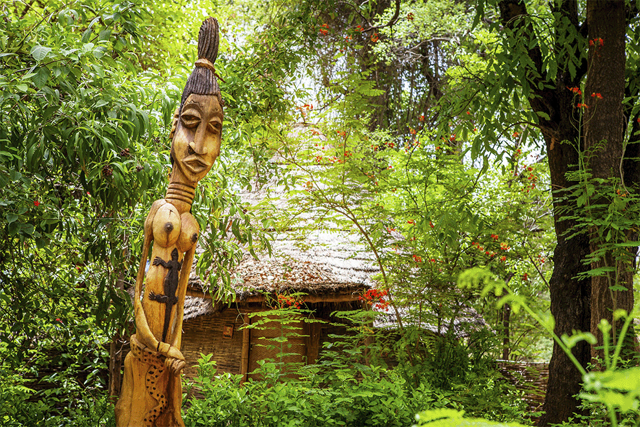
Hospitality internships in Badian
The Badian Solidarity Eco-Camp is part of a network of ecotourism camps set up in various regions of Senegal by the NGO Campamentos Solidarios. The Spanish Association of Active Ecotourism "Campamentos Solidarios" is a non-profit organisation which aims to contribute to the sustainable development of areas of extreme poverty. To this end, they promote eco-tourist camps that serve as employment generators. Ecotourism camps allow rural communities without resources to have a tourist facility that offers them the opportunity to generate economic resources and employment for the population.
The project entails supporting the professional internships of recent hotel management graduates at the hotel school of La Source aux Lamantins in the Badian Solidarity Camp. The internships, aimed at improving the employability of the students at La Source aux Lamantins, will improve the professional skills of the staff and the quality standards of the Badian Camp. Four graduate students from the hospitality programme will be selected for internships at the camp. The graduates will analyse, evaluate, and help improve the camp's services under the direct supervision of the hotel school's teaching staff. The young women will stay in pairs at the camp itself in two separate phases of two months each.
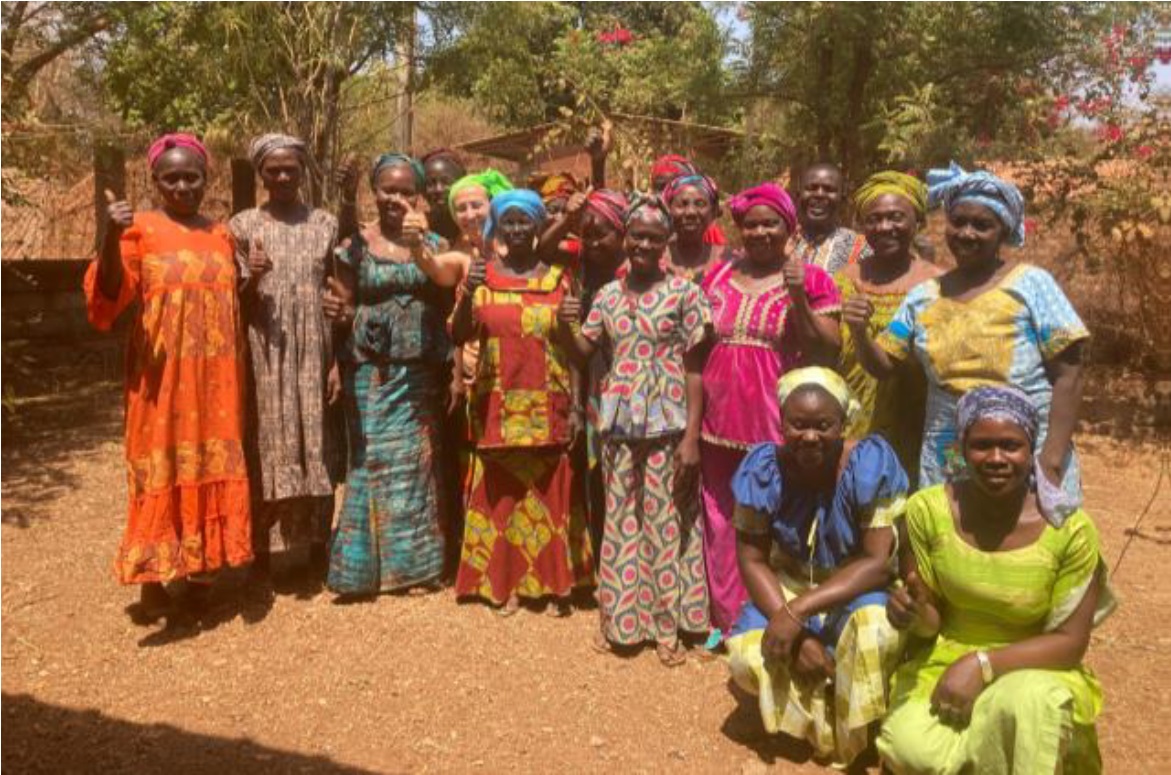
Economic empowerment in Salemata
In early 2022, the NGO Construye Mundo began supporting a group of 50 women in Salémata, Bassari Country, in an initiative focused on the processing and sale of local products: shea butter, fonio, monkey bread and honey. The initiative was supported by BEST Africa with a small start-up grant. Two years later, this new project aims to strengthen the cooperative's business opportunities linked to the processing of shea fruit by adding more specialised products to its offer: body creams, shampoos, hair conditioners and soaps. The diversification of the offer will boost the sales of the Salémata women's group. The initiative includes strengthening the women's capacities for the management of their business and training in techniques for the transformation and production of products derived from shea butter.
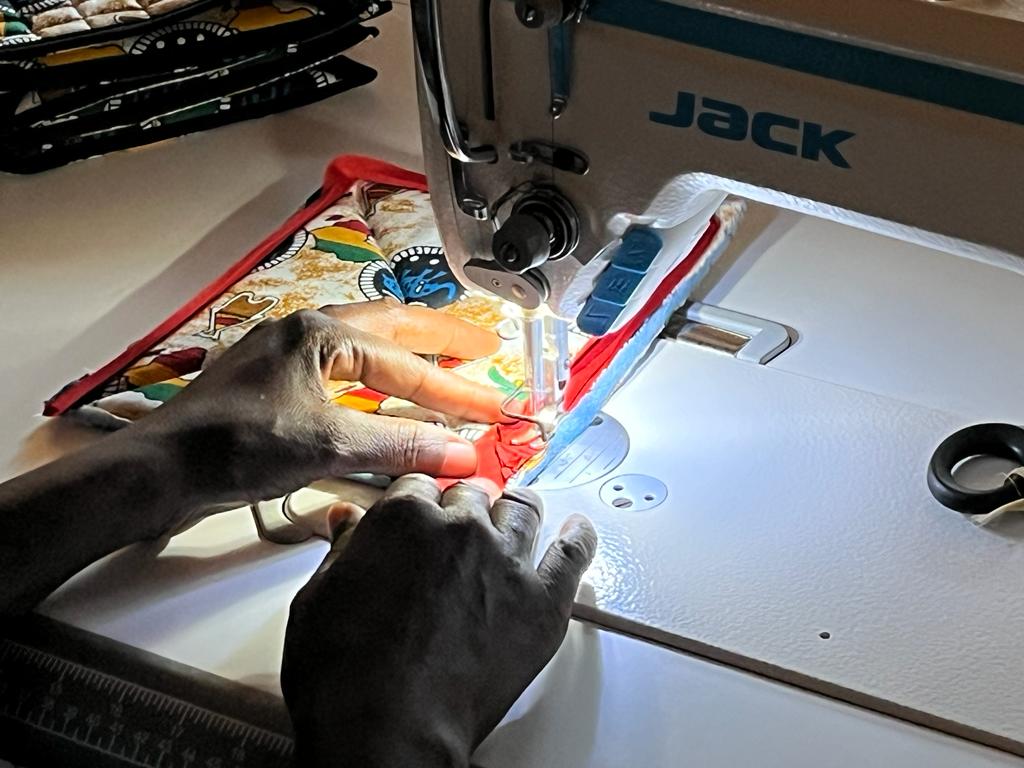
Textile workshop in Kébemer
The NGO Formation Senegal has launched an initiative to finance the initial equipment and training in textile production techniques for a group of rural women in the African Sahel, in the department of Kébemer, a community near the city of Saint Louis. Formation Senegal intends to help scale up this project by facilitating the constitution of an association by the women who make up the group and by building a textile workshop geared towards the development of training activities and the production of textile handicrafts.
The project aims to create a cooperative to ensure stable employment for socially vulnerable women in a group of rural villages in the department of Kébemer. The aim is to ensure access to vocational training resources and employment through holistic support, including counselling, social skills and leadership training, access to different forms of microfinance and support for the development of income-generating activities. As a final goal, a textile workshop managed by the cooperative will be built.

